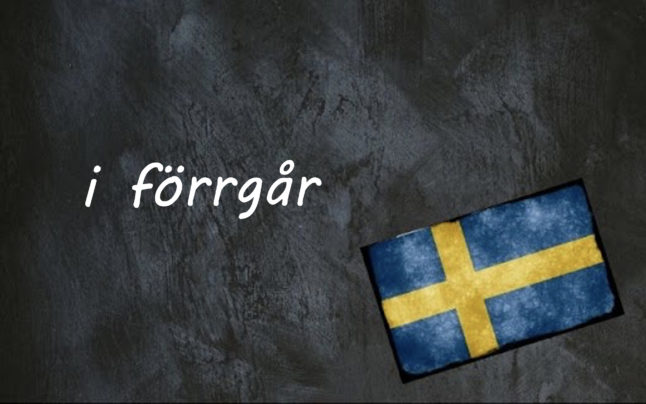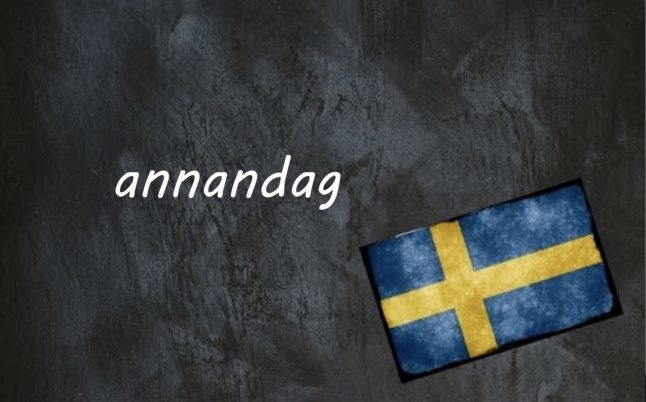Förrgår is one of a number of Swedish words that can relate to a point in time — in either the past or present — by using the i (literally, “in”) preposition, giving some precise terms that aren’t found in English.
It means “the day before yesterday”, and is made up of the word for “yesterday”, “i går”, and the preposition “för” meaning “before”.
Over time, this phrase “för i går” meaning “before yesterday” most likely became “förrgår”.
It must be preceded by a preposition, i, to mean “the day before yesterday”, resulting in the phrase i förrgår.
You may also come across the phrase “i förrgårs” – this is a more archaic variant of i förrgår, most commonly used in southern Sweden. Danish and Norwegian have both kept the -s here, both using the phrase i forgårs to mean “the day before yesterday”.
You can use a similar construction with the preposition i and the suffix -s to talk about past seasons, too – i våras, i somras, i höstas and i vintras mean “last spring”, “last summer”, “last autumn” and “last winter”, respectively.
Similar words for the day before yesterday also exist in German – vorgestern (literally, “before yesterday”), and Dutch eergisteren (similar to the archaic German term ehegestern, also meaning “before yesterday”).
In fact, this term did once exist in English, too – the Old English word ærgistran, also meant “the day before yesterday”.
This term became ereyesterday, consisting of ere, an archaic word meaning “before” or “earlier”, and yester, meaning “last”, as in yesterday or yesteryear.
Ereyesterday has also become an archaic term in English, which you are most likely to come across in old literature or archaic translations of the Bible.
You can also use the phrase i övermorgon in Swedish to talk about time – it means “the day after tomorrow”, and consists of över (“above” “over” or “across”) and “morgon” (“morning” or “tomorrow”, literally the Swedish version of the archaic English word “morrow”).
Like with förrgår, this term also used to exist in English – “overmorrow”, although it has also fallen out of fashion and been replaced with the phrase “on the day after tomorrow”.
Again, it must be preceded by a preposition, i.
The roots of övermorgon are from German, übermorgen, meaning “later than tomorrow” but also used for “the day after tomorrow”.
Example sentences
Visst skulle vi ses med Linda och Peter i förrgårs? Nej, vi ska ut med dom i övermorgon.
We were suppsed to see Linda and Peter the day before yesterday, weren’t we? No, we’re going out with them the day after tomorrow.
När lagade du den lasagnen? Jag lagade den i förrgårs, så den är nog fortfarande okej att äta.
When did you make that lasagne? I made it the day before yesterday, so it should still be fine to eat.
By Emma Firth and Becky Waterton
Villa, Volvo, Vovve: The Local’s Word Guide to Swedish Life, written by The Local’s journalists, is now available to order. Head to lysforlag.com/vvv to read more about it. It is also possible to buy your copy from Amazon US, Amazon UK, Bokus or Adlibris.



 Please whitelist us to continue reading.
Please whitelist us to continue reading.
Member comments